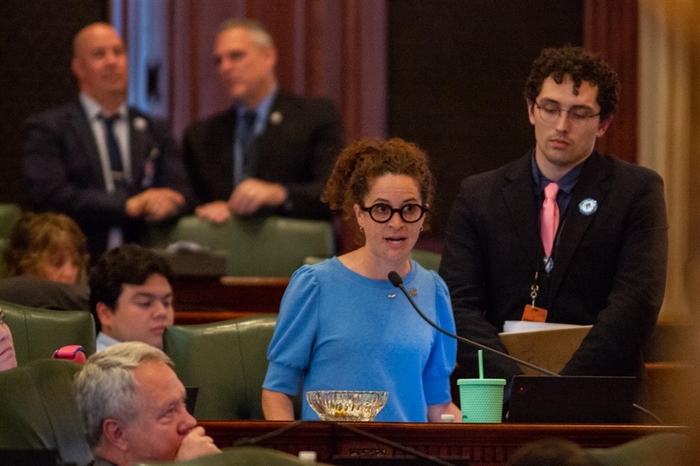Illinois bill to put $20 million toward grants for grocers, research into food insecurity

Communities across Illinois that lack access to nearby stores that sell high quality food may soon see that change.
Gov. JB Pritzker on Friday signed a bill that sets up a program to distribute $20 million for grants and technical assistance for grocery stores as well as funding research into food insecurity.
The grants will go to grocery stores that are independently owned, including for-profit and nonprofit organizations, co-ops and grocery stores owned by units of local government.
The program’s proponents say supporting grocers with state funds will be a boon for residents and struggling local economies.
“When our residents struggle to keep a roof over their head, can’t put food on the table, or have to choose between paying for basic medical care and keeping the lights on – that’s a failure of the system,” Pritzker said in a Friday news release.
According to 2021 data from the U.S. Department of Agriculture, at least 3 million Illinois residents live in food deserts as defined in the new law, although the state’s Department of Commerce and Economic Opportunity can designate additional areas as food deserts.
Data collected this spring by the U.S. Census Bureau also revealed that food insecurity affects multiracial, Hispanic and Black households at higher rates than white households.
This area is not a food desert
This tract in Massac County had a 2010 population of 4,895 and a poverty rate of 11 percent.
This data reflects census tracts that meet the USDA’s definitions for “low-income” and “low access.” To qualify, at least 500 people or 33 percent of the tract’s population must live further than a half mile from a grocery store in urban tracts and 10 miles from a grocery store in rural tracts. The full definition can be found here.
Officials declined to announce a specific timeline for when the grants will become available but said that updates would be published on the DCEO website when about the grant application process is finalized.
“We’re moving as fast as we can because we know there’s a need across the state,” Pritzker said at a Friday news conference.
One of the bill’s chief sponsors, freshman state Rep. Mary Beth Canty, D-Arlington Heights, said in an interview with Capitol News Illinois that she also views the bill as a step toward reducing violence.
“When there’s a lack of investment in communities, that’s when you start to see incidents of violence rise,” Canty said.
She also noted that she hopes to revisit food availability through further legislation or other state programs.
“Some of the things we’ve talked about are looking at this from a public health perspective,” Canty said. “On the business side of things, we’re looking at our licensing structures.”
While the Grocery Initiative originated among Democrats, it passed the Senate unanimously in May, something Pritzker credited to Sen. Dale Fowler, R-Harrisburg. Fowler noted that areas of his rural district struggle with food access.
“An entire county in the 59th district that I represent does not have one single grocery store,” Fowler said on Friday.
In the House, however, there was more conservative opposition leading to a 96-17 vote, splitting the Republican party.
Among the dissenters was Rep. Martin McLaughlin, R-Barrington Hills, who took a hardline stance against the bill, saying the proposal was a “horrendous idea” during floor debate on the bill in May and likening government support for grocery stores to socialist countries like Venezuela and Cuba.
Miss Clipping Out Stories to Save for Later?
Click the Purchase Story button below to order a print of this story. We will print it for you on matte photo paper to keep forever.

